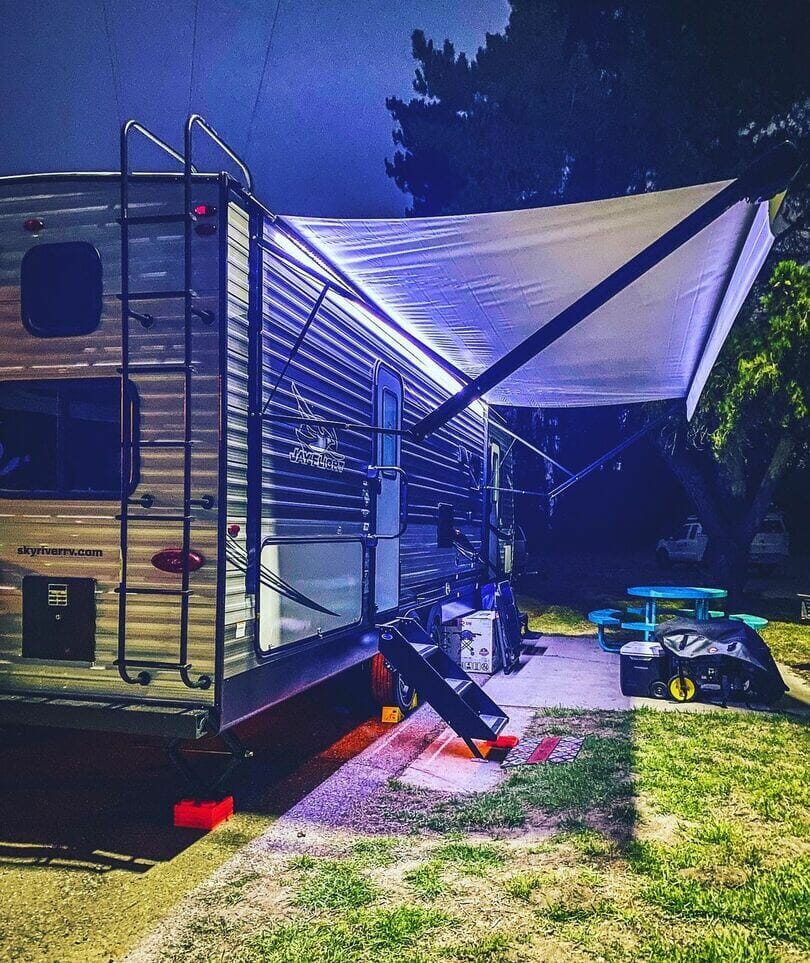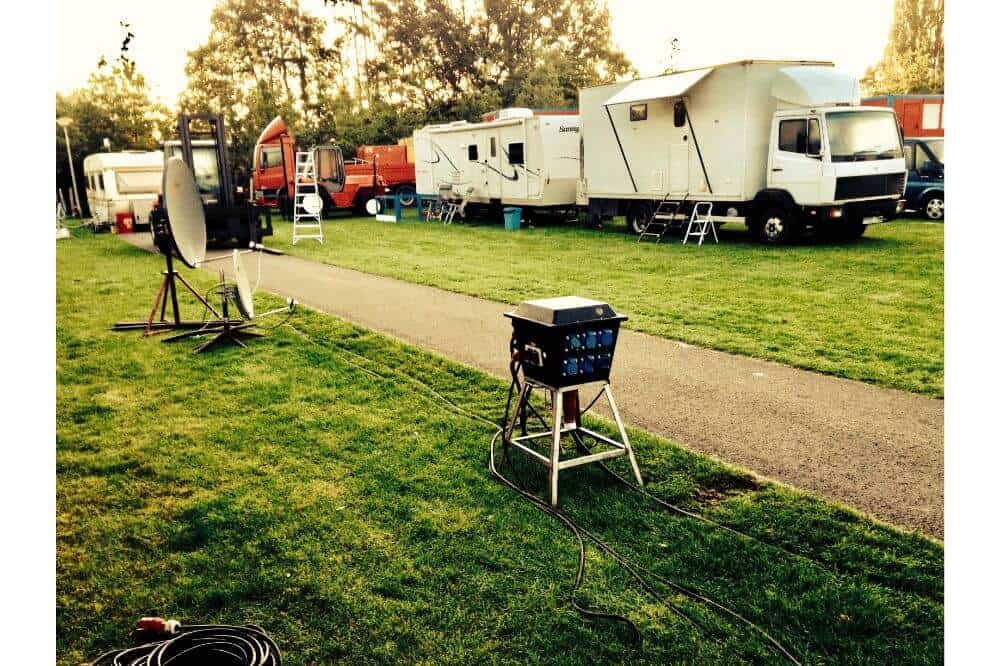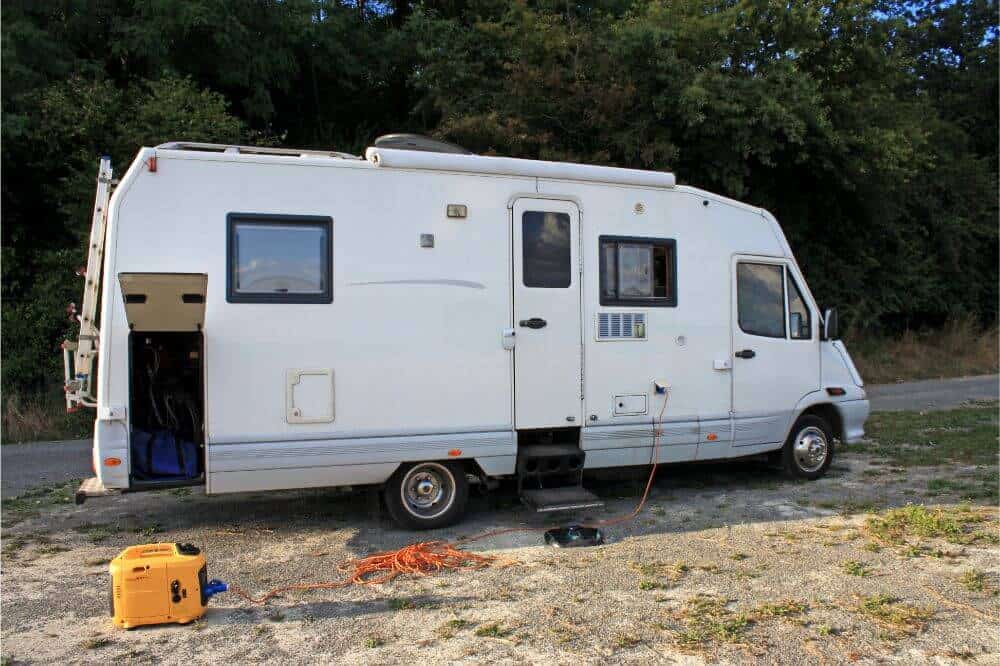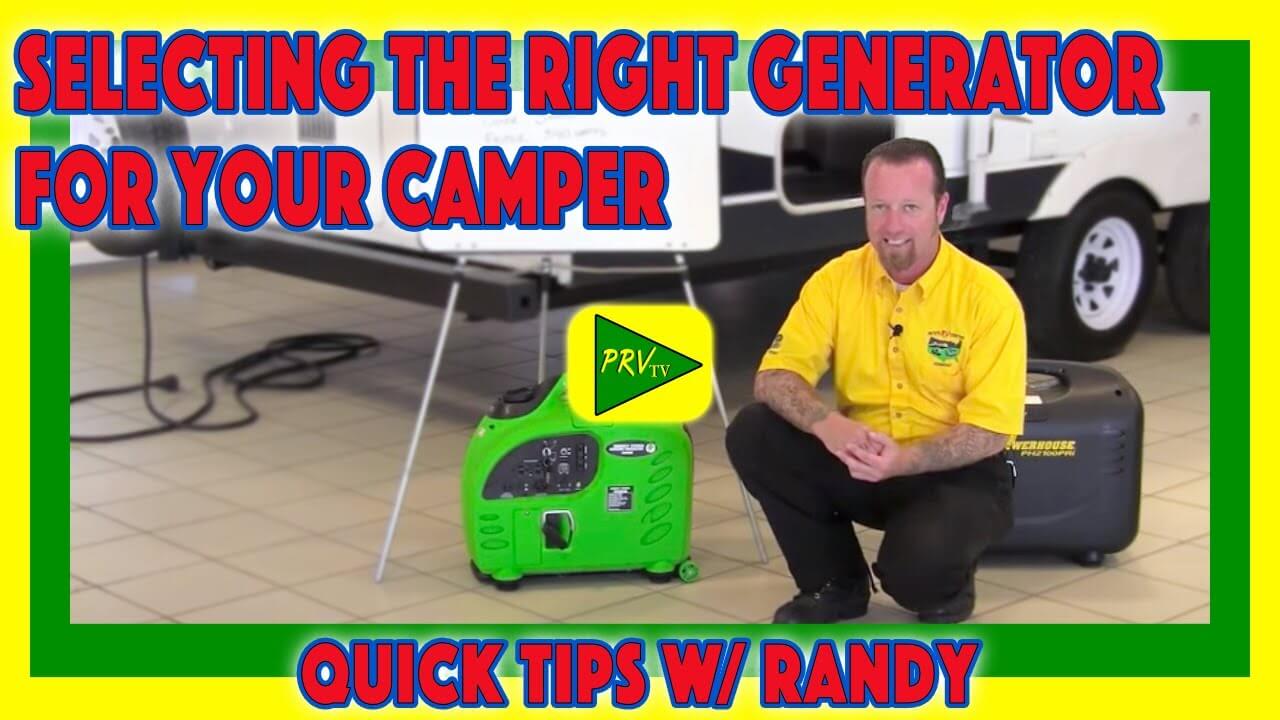What Size Generator Do I Need for My Camper?
The smallest vans and tent campers may not need a generator at all, relying on the tow vehicle’s battery to provide essential electricity for smaller type devices.
But for campers with small appliances like microwaves and coffeemakers, or with A/C and other temperature controls, a generator is a must-have.
But how do you know what size generator you need for your camper? Let’s take a closer look and find out.
How Much Electricity Does a Camper Use?
Individual campers have different needs, depending on their size, insulation, season, and electricity demand. The average RV uses around 20kWh per day, and 608 kWh per month.
Here is a list of the electricity needs for average RV and camper equipment:
| Temperature Control | Starting Watts | Running Watts |
|---|---|---|
| Air conditioner (13,500 BTUs) | 2800 – 3000W | 1500 – 2000W |
| Air conditioner (15,000 BTUs) | 3300 – 3500W | 1300 – 1800W |
| Radiant heater | 1300W | 1300W |
| 20-inch box fan | 0W | 200W |
| Kitchen Appliances | ||
| RV fridge (compact) | 500W | 350W |
| Microwave (750W) | 800W | 750W |
| Slow cooker | 500W | 250W |
| Food processor | 0W | 350W |
| Hot plate | 0W | 750W |
| Coffee maker | 0W | 800W |
| Toaster | 0W | 850W |
| Electric stovetop (RV) | 0W | 2100W |
| Hygiene | ||
| Electric water heater | 0W | 4000W |
| Sump pump | 1400W | 800W |
| Washing machine | 0W | 750W |
| Electronics Gear | ||
| Mobile phone charger | 0W | 10W |
| Laptop computer | 0W | 75W |
| Desktop computer | 0W | 300W |
| TV (13-inch) | 0W | 100W |
| TV (27-inch) | 0W | 500W |
| Radio + CD player | 0W | 100W |
| Video game console | 0W | 200W |
This list will help you assess the approximate electricity demands of your own camper.
Remember that lights and lighting also require electricity, but those demands are typically low, depending on the number and type of bulbs you use.
For items not listed here, consult the owner’s manual or manufacturer’s website to find out the energy demands of your camper and its essential services equipment.

What Size Generator Do You Need for a Camper?
The biggest determination for the size generator you need for your camper is the energy demands of your air conditioner if you have one. Air conditioners have enormous starting wattage requirements, which may consume all the available energy from your generator for a short time.
Many popular RV generators are listed for 3000 or 3000+ Watts. These generators will start an air conditioner, and, after it has started, allow you to run a few lower-energy items.
Large camper generators are often rated for 4500-6000 Watts. These generators will allow you to start an air conditioner while using other items, and provide plenty of energy for cooking and hygiene.
You may also consider choosing two smaller generators, rated at 2000-2200 Watts each. When linked in parallel, they allow you to start a large air conditioner, with power left over for other appliances.
The convenient thing about this option is that it allows you to remove one generator and travel lighter during seasons when the air conditioner isn’t needed.

How to Reduce Electricity Demand in a Camper
Large generators can be heavy and cumbersome, require a lot of fuel, and be noisy. One solution is to reduce the amount of energy your camper needs.
Here are some ways to make your camper more energy-efficient, thus, reducing the demand on your generator and increasing its runtime.
Improve Insulation
Like a home, a camper loses energy when it is poorly insulated. Choose double-pane insulated windows; if your manufacturer doesn’t have them, you may be able to find used ones. If you can’t upgrade your windows, make sure that your windows are seated correctly with minimal leaks.
If possible, add sealing that reduces airflow. You may also upgrade the insulation in the body of your camper: modern RV insulation is more effective and more compact than it has been in the past.
Upgrading your insulation makes your camper more comfortable and energy-efficient all year long.
Don’t forget to insulate your water lines, even the plastic ones. Use pipe wrap or other insulating materials to insulate your pipes, which allows you to reduce energy costs on hot water.
Reduce Airflow
Covering vents allows you to retain your heated or cooled air and reduces energy costs. Using an RV skirt is a great way to reduce energy needs and keep a camper comfortable.
Park Smart
Parking your camper in the sun in winter and the shade in summer allows you to reduce energy costs by taking advantage of the passive temperature in your site.
Rethink Your Lights
If you haven’t yet, switch to low-energy LED lights. There are also many options for camping-friendly solar-powered string lights that make a camper warm and appealing without using any generator electricity at all.
Switch Off Devices
If you are using an inverter generator, it is drawing a small amount of power even when it isn’t in use.
Turning off or even unplugging kitchen appliances, electronic devices, and other items when they aren’t in use may only save small amounts of energy per day, but every little bit saves you money in fuel.
In Conclusion
Now you know how to calculate and size a generator correctly, you can purchase a generator that will meet all your temporary power demands when a power outage occurs.
You can select with confidence the best generator for your camper.
Hopefully, you’ve also gained some tips and insight to assist with reducing your energy needs. With that, you’ll also be able to increase the efficiency of your generator.


